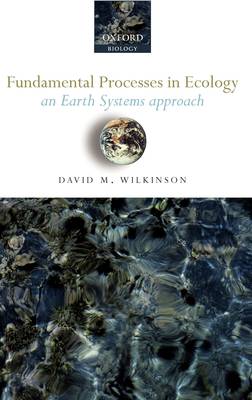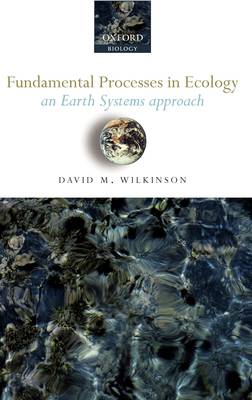
- Afhalen na 1 uur in een winkel met voorraad
- Gratis thuislevering in België vanaf € 30
- Ruim aanbod met 7 miljoen producten
- Afhalen na 1 uur in een winkel met voorraad
- Gratis thuislevering in België vanaf € 30
- Ruim aanbod met 7 miljoen producten
Zoeken
€ 201,45
+ 402 punten
Uitvoering
Omschrijving
Fundamental Processes in Ecology presents a way to study ecosystems that is not yet available in ecology textbooks but is resonant with current thinking in the emerging fields of geobiology and Earth System Science. It provides an alternative, process-based classification of ecology and proposes a truly planetary view of ecological science. To achieve this, it asks (and endeavours to answer) the question, "what are the fundamental ecological processes which would be found on any planet with Earth-like, carbon based, life?" The author demonstrates how the idea of fundamental ecological processes can be developed at the systems level, specifically their involvement in control and feedback mechanisms. This approach allows us to reconsider basic ecological ideas such as energy flow, guilds, trade-offs, carbon cycling and photosynthesis; and to put these in a global context. In doing so, the book puts a much stronger emphasis on microorganisms than has traditionally been the case. The integration of Earth System Science with ecology is vitally important if ecological science is to successfully contribute to the massive problems and future challenges associated with global change. Although the approach is heavily influenced by Lovelock's Gaia hypothesis, this is not a popular science book about Gaian theory. Instead it is written as an accessible text for graduate student seminar courses and researchers in the fields of ecology, earth system science, evolutionary biology, palaeontology, history of life, astrobiology, geology and physical geography.
Specificaties
Betrokkenen
- Auteur(s):
- Uitgeverij:
Inhoud
- Aantal bladzijden:
- 200
- Taal:
- Engels
Eigenschappen
- Productcode (EAN):
- 9780198568469
- Verschijningsdatum:
- 12/10/2006
- Uitvoering:
- Hardcover
- Formaat:
- Genaaid
- Afmetingen:
- 159 mm x 242 mm
- Gewicht:
- 621 g

Alleen bij Standaard Boekhandel
+ 402 punten op je klantenkaart van Standaard Boekhandel
Beoordelingen
We publiceren alleen reviews die voldoen aan de voorwaarden voor reviews. Bekijk onze voorwaarden voor reviews.











